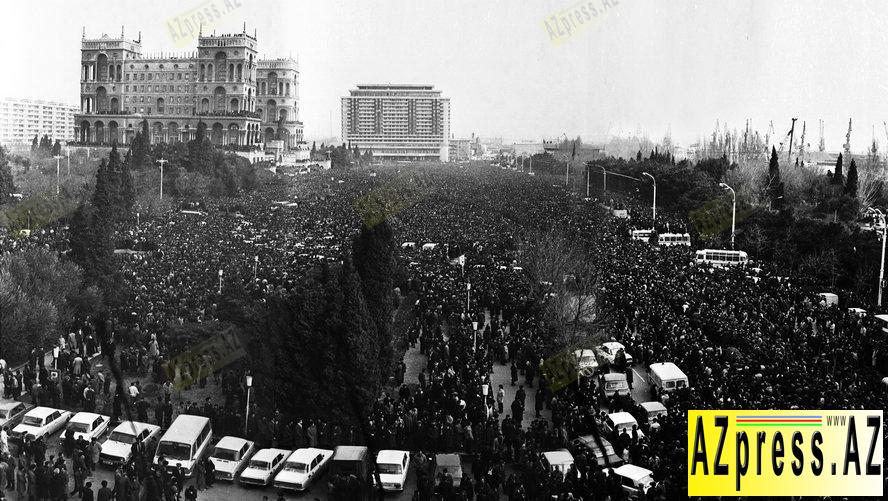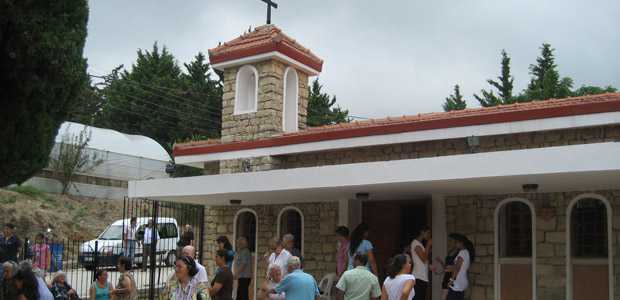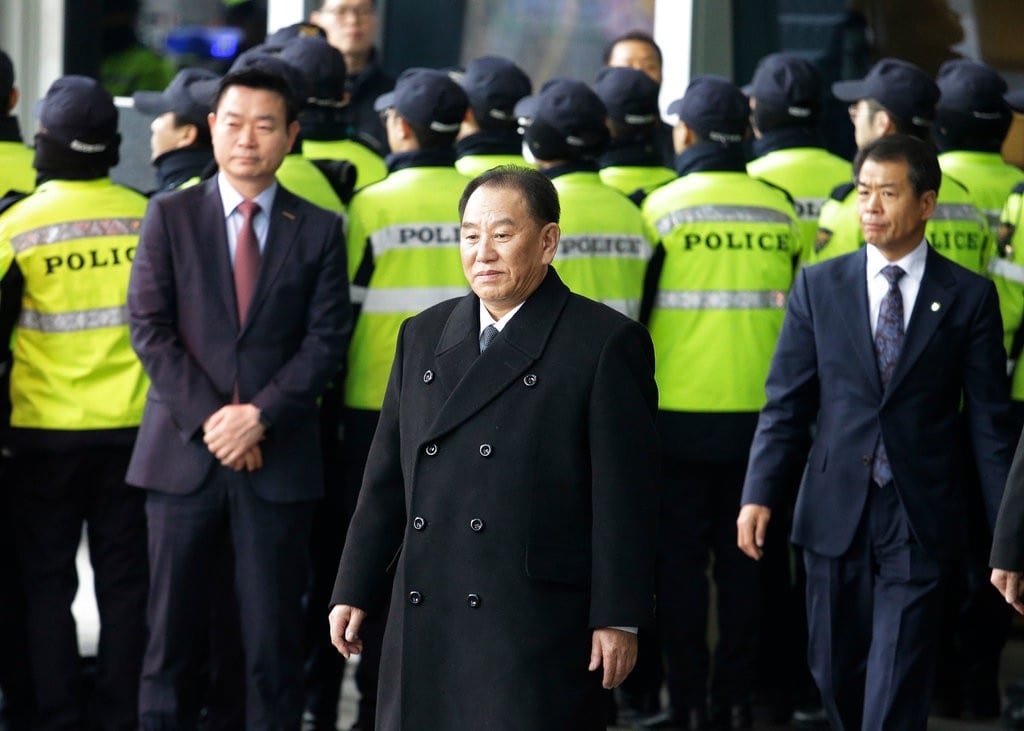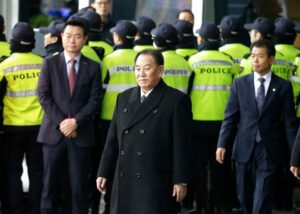Walt Garlington
President Trump got a lot of cheers when he said the following during his State of the Union address:
There could be no greater contrast to the beautiful image of a mother holding her infant child than the chilling displays our nation saw in recent days. Lawmakers in New York cheered with delight upon the passage of legislation that would allow a baby to be ripped from the mother’s womb moments before birth.
These are living, feeling, beautiful babies who will never get the chance to share their love and dreams with the world. And then, we had the case of the governor of Virginia where he stated he would execute a baby after birth. To defend the dignity of every person, I am asking the Congress to pass legislation to prohibit the late-term abortion of children who can feel pain in the mother’s womb. Let us work together to build a culture that cherishes innocent life.
And let us reaffirm a fundamental truth — all children — born and unborn — are made in the holy image of God.
—Nicole Fallert, https://www.vox.com/2019/2/5/18212533/president-trump-state-of-the-union-address-live-transcript
But are the sentiments expressed here about protecting innocent life, about affirming the truth that man is made in the image of God, consistent with the aspirations and history of the American project, or with non-Orthodox Western civilization in general? Unfortunately, they are not.
Charles in Charge of the West
No, not that Charles:
This one:
Since Western Europe first began to conceive of herself in the eighth century as an entity apart from the worldwide Orthodox Christian Empire, the innocent have suffered greatly. This process began when Charlemagne (742-814) set up his heretical version of the Christian Empire in Aachen, heretical because he denied the validity of the Seventh Ecumenical Council’s teachings on the necessity to venerate the holy icons of the Lord Jesus Christ, His Most Pure Mother, and the other saints and angels; and because of his addition of the Filioque to the Nicene Creed. Given this auspicious beginning, it is unsurprising to find in the history of his reign that he caused much blood to flow in the expansion of his ‘Holy Roman Empire’, including the 4,500 Saxons slaughtered at Verden:
—http://www.medievalists.net/2014/02/was-charlemagne-a-mass-murderer/
Yet this is the same Charlemagne whom Pope Benedict XIV saw fit to beatify in the 18th century. The Roman Catholic faithful are to address him as ‘Blessed Charlemagne’:
—https://catholicsaints.info/blessed-charlemagne/
Roman Catholic West
That beatification by the Pope is quite fitting, however. For with Charlemagne’s death in 814, his false empire collapsed, and the next attempt at Western self-exaltation, at setting up a false Christian Empire in opposition to the Orthodox Empire, came from the bishops of Rome themselves, beginning officially in 1054 and lasting to this very day. Following this sundering came, predictably, more needless bloodshed. The Roman Catholic Norman Invasion of the Orthodox kingdom of England took place in short order (1066) with the blessing of Pope Alexander II. William the Conqueror’s own words tell how grisly this early attempt at papal conquest was:
I have persecuted the natives of England beyond all reason. Whether gentle or simple I have cruelly oppressed them; many I unjustly disinherited; innumerable multitudes perished through me by famine or the sword … I fell on the English of the northern shires like a ravening lion. I commanded their houses and corn, with all their implements and chattels, to be burnt without distinction, and great herds of cattle and beasts of burden to be butchered wherever they are found. In this way I took revenge on multitudes of both sexes by subjecting them to the calamity of a cruel famine, and so became the barbarous murderer of many thousands, both young and old, of that fine race of people.
William’s death-bed confession, according to Ordericus Vitalis, c. AD 1130
—Quoted in Fr Andrew Phillips, Orthodox Christianity and the Old English Church, p. 23 of PDF,
Fr Andrew continues,
It has been estimated that during William I’s reign up to one in five of the English population died by the sword or in famineslxii. This does not include the deaths of the non-English population in Wales or Scotland, nor the civil war deaths in the reign of Stephen, nor the deaths resulting from the Papally-sponsored Norman invasion of Ireland, nor those of the One Hundred Years War which was provoked by the territorial claims to France of the Anglo-Norman kings. Even if the figure of one in five is exaggerated and it can be halved, one in ten is equivalent today to over five million deaths – fifteen times the number of British deaths resulting from the Second World War. The account of the Anglo-Saxon Chronicle is unambiguous: ‘And they built castles far and wide throughout the land, oppressing the unhappy people, and things went ever from bad to worse’. ‘Only amongst the monks, where they lived virtuously was righteousness to be found in the land.’ Of William ‘the Bastard’, the Chronicle says the following: ‘Assuredly in his time men suffered grievous oppression and manifold injuries … he was sunk in greed and utterly given up to avarice. He was too relentless to care even though all might hate him … Alas! That any man should bear himself so proudly and deem himself exalted above all other men.lxiii’ Of the tortures inflicted on captives and the gruesome account of William’s funeral, when his stomach burst open in stinking putrefaction, one can read elsewhere (pgs. 25-6).
Not too long after the Norman Invasion, the Crusades were launched by Pope Urban II in 1095. Bernard of Clairvaux (d. 1153) justified the killing this way in his work In Praise of the New Knighthood:
To be sure, precious in the eyes of the Lord is the death of his holy ones, whether they die in battle or in bed, but death in battle is more precious as it is the more glorious (Ch. I, section 2). . . .
BUT THE KNIGHTS OF CHRIST may safely fight the battles of their Lord, fearing neither sin if they smite the enemy, nor danger at their own death; since to inflict death or to die for Christ is no sin, but rather, an abundant claim to glory. In the first case one gains for Christ, and in the second one gains Christ himself. The Lord freely accepts the death of the foe who has offended him, and yet more freely gives himself for the consolation of his fallen knight.
The knight of Christ, I say, may strike with confidence and die yet more confidently, for he serves Christ when he strikes, and serves himself when he falls. Neither does he bear the sword in vain, for he is God’s minister, for the punishment of evildoers and for the praise of the good. If he kills an evildoer, he is not a mankiller, but, if I may so put it, a killer of evil. He is evidently the avenger of Christ towards evildoers and he is rightly considered a defender of Christians. Should he be killed himself, we know that he has not perished, but has come safely into port. When he inflicts death it is to Christ’s profit, and when he suffers death, it is for his own gain. The Christian glories in the death of the pagan, because Christ is glorified; while the death of the Christian gives occasion for the King to show his liberality in the rewarding of his knight. In the one case the just shall rejoice when he sees justice done, and in the other man shall say, truly there is a reward for the just; truly it is God who judges the earth.
I do not mean to say that the pagans are to be slaughtered when there is any other way to prevent them from harassing and persecuting the faithful, but only that it now seems better to destroy them than that the rod of sinners be lifted over the lot of the just, and the righteous perhaps put forth their hands unto iniquity (Ch. 3). . . .
—https://history.hanover.edu/courses/excerpts/344bern2.html
Note the utter dehumanization by Bernard of the Muslims. They are no longer men but simply ‘evil’ itself, confounding person and attribute. No wonder that upwards of 1,000,000 are estimated to have died in the Crusades ). This sort of mindset has remained typical of the post-Schism West in her wars of righteousness against those she believes to be ‘evildoers’. And let us also recall that Bernard has been not simply beatified like Charlemagne but fully canonized as a saint of the Roman Catholic congregation.
—https://catholicsaints.info/saint-bernard-of-clairvaux/
Protestant West
When the peoples of Western Europe democratized the papist principle (that one man, instead of a council of bishops guided by the Holy Ghost, can determine what is and is not the True Faith), applying it to themselves one and all, then the Protestant Reformation was born, and the shadow which lay across that part of the Eurasian land grew darker. Delusional apocalyptic fervor grew, and along with it the flow of blood. A couple of ensamples will suffice.
The actions of Martin Luther, who began the Reformation in earnest in 1517, during the Peasants’ War in Germany is the first. He wrote,
I will not oppose a ruler who, even though he does not tolerate the gospel, will smite and punish these peasants without first offering to submit the case to judgment (quoted in Archpriest Josiah Trenham, Rock and Sand, Newrome Press, 2015, p. 98).
Fr Josiah goes on to relate the consequences of such statements:
On May 15, Müntzer’s forces were slaughtered by the nobility at Frankenhausen. Some 6000 peasants were killed, with only some six casualties on the side of the princes. Müntzer was captured and beheaded twelve days later. In upper Germany alone, it is estimated that some 130,000 peasants were slaughtered. . . . Luther was sharply criticized by many for his position, and was called “the hammer of the poor” by Hermann Mühlpfort, the mayor of Zwickau (Ibid.).
The next, which would decisively cripple what was left of Christianity in Western Europe, is the Thirty Years’ War (1618-48), which was fought between various Roman Catholic and Protestant countries for the supremacy of their creeds over Western Europe. There were upwards of 8,000,000 casualties due to the fighting of these ‘Christian nations’, which included death by hunger and disease of many civilians ).
During the Thirty Years’ War, many of the contending armies were mercenaries, many of whom could not collect their pay. This threw them on the countryside for their supplies, and thus began the “wolf-strategy” that typified this war. The armies of both sides plundered as they marched, leaving cities, towns, villages, and farms ravaged.
—https://www.britannica.com/event/Thirty-Years-War
Enlightenment West
From here onwards, Western Europe and her children became the breeding ground for all manner of utopian (i.e., demonic) ideologies meant to replace the simulacrums of Christianity they had experienced, but sometimes still masquerading in the costume of Christianity. But this would not end the bloodletting in the West, but only increase it exponentially. From the French Revolution to the Russian Revolution, from the War of Northern Aggression against Dixie to the War on Terror, Western wars of ideology have resulted in the deaths of tens of millions, with millions more suffering besides.
Former Secretary of State Madeleine Albright’s famous quote about sanctions on Iraq from 1996 show that the Western soul hasn’t much changed since Bernard’s propaganda of the 12th century:
Correspondent Leslie Stahl said to Albright, “We have heard that a half-million children have died. I mean, that’s more children than died in Hiroshima. And — and, you know, is the price worth it?”
Madeleine Albright replied, “I think this is a very hard choice, but the price — we think the price is worth it.”
—https://www.democracynow.org/2004/7/30/democracy_now_confronts_madeline_albright_on
The U.S./NATO bombing of Serbia during the holy seasons of Easter and Pentecost in 1999 shows the same:
According to the estimates of the government of Serbia, at least 2,500 people, of whom 89 children, were killed during the attacks (according to some sources, the total death toll was nearly 4,000), while more than 12,500 people were wounded and injured.
. . .
Almost every town in Serbia had been targeted during the 11 weeks of the air strikes.
The bombing destroyed and damaged 25,000 housing units, 470 km of roads and 595 kilometers of railways.
The attacks also damaged 14 airports, 19 hospitals, 20 health centers, 18 kindergartens, 69 schools, 176 cultural monuments and 44 bridges, while 38 were destroyed.
During the aggression NATO carried out a total of 2,300 airs trikes on 995 facilities across the country, while 1,150 combat aircraft launched nearly 420,000 missiles.
NATO also launched 1,300 cruise missiles, dropped over 37,000 cluster bombs, which killed some 200 people and wounded hundreds, and used prohibited ammunition with depleted uranium.
A third of the electrical power capacity of the country was destroyed, two oil refineries, in Pancevo and Novi Sad bombed, while NATO forces used the opportunity to for the first time deploy the so-called graphite bombs to disable the power system.
. . .
—https://www.b92.net/eng/news/society.php?yyyy=2016&mm=03&dd=24&nav_id=97466
This same grisly barbarity is still on display by the Most Christian Country, The Holy Republic of America, the greatest country that ever was, is, or is to come. Venezuela is a telling example:
This is unprecedented—Bolton publicly announcing a military coup (usually with hundreds if not thousands of deaths). He deliberately showed off his notebook with scribbled invasion plans, so there would be no question about the agenda.
But that’s how the neocons operate. Lies, falsifications, grandiose claims, and invasions to forcibly install “democracy,” which is nothing of the sort.
Bolton’s “democracy” is doublespeak in action. It’s a thinly disguised euphemism used to obscure the actual objective—the destruction of entire nations, cultures, and societies at the cost of hundreds of thousands if not millions of lives. Untold millions of lives have been destroyed by the sort of “democracy” Bolton is talking about. It was put into action when Bolton was a toddler.
Let’s get real. Bolton doesn’t care about the people of Venezuela. If he did the US would not be imposing harsh sanctions that are resulting in malnutrition and starvation. Bolton is using the age-old technique of starving and depriving people so they will overthrow the government (this tactic rarely works—leading me to believe it is inflicted out of pure sadism—leading to the exact opposite reaction).
—Kurt Nimmo, https://www.lewrockwell.com/2019/02/no_author/john-boltons-plan-to-starve-millions-of-venezuelans-into-submission/
One could substitute ‘Iran’ or ‘Yemen’ for ‘Venezuela’ and have largely the same essay.
All of this seems to sit just fine with the Evangelicals in the States (just listen to Frank Gaffney sometime, ; Thomas DiLorenzo offers this description of them, together with some of their backstory:
These are the people whose churches are littered with gigantic American flags that dwarf any Christian icons; who routinely ask anyone who owns a military uniform to wear it to church; who sing the state’s war anthems at their services; who divert their Sunday offerings away from the poor and needy in their communities so that the money can be sent to grossly-overpaid military bureaucrats; and who can never stop thanking, thanking, thanking, and thanking “soldiers” for their “service” in murdering foreigners and bombing and destroying their cities – if not their entire societies – in the state’s aggressive, non-defensive, foreign wars.
Where did this very un-Christian “religion” of violence come from? The answer to this question is that it first developed as a part of New England’s neo-Puritanical “Yankees” in the early and mid-nineteenth century. It reached its zenith in the 1860s when, finally in control of the entire federal government, the New England Yankees waged total war on the civilian population of a large part of their own country, mass murdering fellow Americans by the hundreds of thousands, and then singing a “religious” song that described it all as “the glory of the coming of the Lord.”
As Murray Rothbard described them in his essay, “Just War”:
The North’s driving force, the ‘Yankees’ – that ethnocultural group who either lived in New England or migrated from there to upstate New York, northern and eastern Ohio, northern Indiana, and northern Illinois – had been swept by . . . a fanatical and emotional neo-Puritanism driven by a fervent ‘postmillenialism’ which held that as a precondition of the Second Advent of Jesus Christ, man must set up a thousand-year-Kingdom of God on Earth. The Kingdom is to be a perfect society. In order to be perfect, of course, this Kingdom must be free of sin . . . . If you didn’t stamp out sin by force you yourself would not be saved.
This is why “the Northern war against slavery partook of a fanatical millenialist fervor, of a cheerful willingness to uproot institutions, to commit mayhem and mass murder, to plunder and loot and destroy, all in the name of high moral principle,” wrote Rothbard. They were “humanitarians with the guillotine,” the “Jacobins, the Bolsheviks of their era.”
Clyde Wilson described these neo-Puritanical zealots in a similar manner in his essay, “The Yankee Problem in America”:
Abolitionism, despite what has been said later, was not based on sympathy for the black people nor on an ideal of natural rights. It was based on the hysterical conviction that Southern slaveholders were evil sinners who stood in the way of fulfillment of America’s driving mission to establish Heaven on Earth . . . . [M]any abolitionists expected that evil Southern whites and Blacks would disappear and the land repopulated by virtuous Yankees” (emphasis added).
—https://www.lewrockwell.com/2014/07/thomas-dilorenzo/the-american-religion-of-violence/
And here we are, awaiting still the final grand unveiling of the Yankee/Western Millennium.
The Genocide of the Saints
As horrendous as the foregoing has been, there is still a crime of the apostate post-Schism West that we have not yet spoken of which we consider more hideous than all of that: the desecration of the saints, whether their bodily relics, representations, or shrines. More depraved than the slaughter of innocent children? Yes. A little child does indeed bear the image of God and is innocent of any purposeful wrongdoing, has not yet known the fall into the knowledge of evil. The saint, on the other hand, while retaining the image of God, has nevertheless cooperated with the Grace of God to such a degree that he has attained the likeness of God as well (see Gen. 1:26), overcoming his fallen, sinful nature and uniting with the Holy Ghost. Therefore, the saints are the most innocent, the most guileless, moreso than even children.
But this did not matter to the West. In her self-righteous zeal she sought to brutalize the saints as well. We have already mentioned very briefly Charlemagne’s effort at this. His rejection of the Seventh Ecumenical Council’s command to venerate images of the saints is already a rejection by the West of the Holy Ghost, Who resides in the images and shrines of the saints, and also especially in their incorrupt relics, with which He remains united as a foretelling to man of the Resurrection to come.
The Roman Catholic Normans who invaded Orthodox England in 1066 went further. Fr Andrew Phillips writes,
The record of the losses of Old English art and architecture is heart-rending. Today we have little more than fragments of Old English architecture. Of course much was built of wood and could not have lasted, but nevertheless the story of the Norman destruction of Old English church buildings is too much like barbarian vandalism to be excused. When they came to demolish the Cathedral in Worcester in 1086, the saintly Bishop Wulfstan remarked: ‘The men of old may not have had stately edifices, but they were themselves a sacrifice to God, whereas now they pile up stones, but forget the soul’lxiv. It is more distressing to read of the destruction of the European treasurehouse of church art which Old England was. If the churches were razed, leaving us with a pitiful idea of what the former architecture was really like, then, what can we say of Old English Art?
‘Nowhere in Europe, even in Byzantium itself, was there a more advanced conception of manuscript illustration and decoration than in Britain. Nowhere, even in Persia, were finer textiles embroidered; nowhere was finer sculpture in stone executed nowhere were finer ivories carved … they are all quite easy to distinguish as English. They stand out, moreover, by virtue of their quality.’ So speaks the art historian, Talbot-Ricelxv. Indeed the English were renowned for the quality of their embroidery and we know of a school of embroidery at Ely, though doubtless there were many others. The Winchester School of manuscript illumination was widely known and represented the spiritual and artistic flowering of the tenth century English Renaissance.
The destruction of nearly all of this heritage makes lugubrious reading. ‘In the spring of the year (1070), the King had all the monasteries in England plunderedlxvi’. In the eleventh and twelfth centuries there are unending lists of gold crucifixes, vestments of woven gold, silver and gold sacred vessels and censers, chalices and patens, shrines and altars with their embroidered hangings, silver and gilt ewers of Byzantine work, Gospel-books adorned with precious stones, gold reliquaries and the holy relics contained within, silks and precious hangings, ornaments which in the words of William of Poitiers, ‘Byzantium would hold very dear.’ In the twelfth century he wrote: ‘A Greek or Arab visitor would have been carried away by delight’ at the sight of the treasures melted down or sent to France by William. From one church alone he stole treasures worth £6,000, a colossal sum in modern termslxvii.
All this was pillaged; the Old English Church was raped and ravaged. The depths of blasphemy and sacrilege were reached when the Norman clergy began burning the relics of the Old English saints to see if they were authentic; their doubts sometimes seem to have been founded merely on the Norman inability to pronounce the Old English names. Such barbarian acts were not to be seen again until the sack of Christian Constantinople during the Fourth Crusade in 1204. Later we shall see the Old English connection even here. The accounts of the sack of Old English art are among the most shameful in Western history. After William and his descendants, then the fires of the Middle Ages, followed by the syphilitic frenzy of greed of Henry VIII and the outbursts of the Puritans, then the vandalism of the Victorians, it comes as no surprise when we realise that what we possess of a half-millennium of Old English Art and Architecture is nothing but a single crumb from a huge but ever lost royal banquet. It is an immensely sobering but nonetheless true fact that there is a part of human nature that delights in the destruction of everything beautiful, be it the creation of God or of man.
—Orthodox Christianity and the Old English Church, pgs. 26-7
As Fr Andrew indicates, the Protestants too would take part in this genocide against the holy saints and their memory.
Motadel writes that,
“The prototype of all modern forms of iconoclasm [Noyes] found in Calvin’s Geneva and Ibn Abd al-Wahhab’s Mecca. Sixteenth-century Geneva witnessed one of the most devastating waves of religious image-breaking in history. Incited by a group of charismatic theologians – among them John Calvin himself – mobs raged against objects associated with miracles, magic and the supernatural, destroying some of the city’s most precious pieces of Christian art. Invoking the Second Commandment, they denounced these works as idols, and as remnants of a rural, feudal and superstitious world, a world corrupted by Satan.” The Western Assault on Innocent Life
Nor was Geneva unusual. In Basel in 1529, widespread iconoclastic riots destroyed virtually all the material tokens of traditional Catholic worship and devotion in the cathedral and the city’s leading churches. Even these German and Swiss manifestations were dwarfed by the devastating Storm of Images (Beeldenstorm) that swept over the Netherlands in 1566.
This movement was directed against any and all Catholic material symbols — against stained glass windows, statues of the Virgin and saints, holy medals and tokens.
Such stories of image-breaking (iconoclasm) are familiar enough to anyone who knows about the Reformation, and there are plenty of scholarly studies.
Recent works, though, highlight two features of the movement that often get underplayed:
1. Iconoclasm was central to the Reformation experience, not marginal, and not just a regrettable extravagance.
Historians of the Reformation tend to be bookish people interested in books, so they focus on aspects of literacy and translation, with the spread of the vernacular Bible as the centerpiece of the story. The idea of the Reformation as a “media revolution” is common enough.
Yes, we do read of outbreaks of destructive violence and iconoclasm, but these are usually presented as marginal excesses, or understandable instances of popular fury against church abuses. Once we get those unfortunate riots out of the way, we can get back to the main story of tracing the process of Bible translation.
That’s very misleading. For anyone living at the time, including educated elites, the iconoclasm was not just an incidental breakdown of law and order, it was the core of the whole movement, the necessary other side of the coin to the growth of literacy. Those visual and symbolic representations of the Christian story had to decrease, in order for the world of the published Bible to increase. The Western Assault on Innocent Life
In terms of the lived experience of people at the time, the image-breaking is the key component of the Reformation. In the rioting and mayhem, a millennium-old religious order was visibly and comprehensively smashed.
In words adapted from the Vulgate version of Job, the Calvinist motto proclaimed, Post Tenebras Lux: After darkness, Light. (And that is still Geneva’s motto).
. . .
—Philip Jenkins, https://www.patheos.com/blogs/anxiousbench/2014/07/the-breaking-of-images/
One would think such crimes as these might cause Protestants to have some hesitation about judging the sins of others, but it has not. Regarding China, for example, they say,
WASHINGTON — The Chinese government is supervising a five-year plan to make Christianity more compatible with socialism in which there will be a “rewrite” of the Bible, a prominent religious freedom activist has told Congress.
The Rev. Bob Fu, a former Chinese house church leader who immigrated to the United States in 1997 and founded the persecution watchdog organization China Aid, provided great detail during a House hearing Thursday about a plan enacted by leading state-sanctioned denominations in China to “Sincize” Christianity.
As China’s crackdown on religion has seen many house churches demolished and thousands of crosses removed from churches nationwide, Fu warned upfront that what is happening right now in China represents the highest degree of persecution for independent faith groups the country has seen in decades.
—Samuel Smith, https://www.christianpost.com/news/china-trying-to-rewrite-the-bible-force-churches-sing-communist-anthems-227664/
Yet in all three areas they raise in criticism of China – rewriting the Bible, tearing down churches, and destroying Crosses – Protestants are guilty themselves. The Protestants removed several books from the Old Testament canon of the Bible, and Martin Luther himself added ‘alone’ to his translation of Romans 3:28 (‘man is justified by faith alone’) and also wanted to throw out the Book of James because it contradicted the theological system he created. See, e. g.,
http://www.bible-researcher.com/antilegomena.html
Of the other two, it is enough to recall Mr Jenkins’s article just above as well as the quote of Bishop Joseph Hall shown in the linked section of this article:
https://en.wikipedia.org/wiki/Iconoclasm#Reformation_era.
This in no way excuses China’s repressive measures, but the Protestant hypocrisy is extraordinary. For these children of the Chinese Communist revolutionaries (and their forebears in France, Russia, etc.) are, in the end, only carrying on the legacy of the Protestants (and the Roman Catholic popes) by overturning the received traditions and replacing them with new, self-created ones.
The Future of the West
How does one even begin to close an essay like this, cataloguing such inhuman evil in the West? Only one word seems appropriate: Repent.
Most popular
Mar 4, 2019 1:00 am 13309 The Western Assault on Innocent Life
Mar 5, 2019 3:39 pm 11403 Washington Post: Driver of Non-Checking Information. Part 1
Mar 6, 2019 1:00 am 9630 Washington Post: Driver of Non-Checking Information. Part 2
Mar 6, 2019 5:19 am 7038 More Than Half of Americans Say Trump Is Dishonest Author: Walt Garlington







